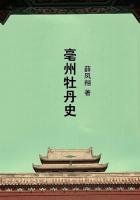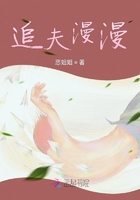"A reciprocity of friendship between a Queen and a subject, by those who never felt the existence of such a feeling as friendship, could only be considered in a criminal point of view. But by what perversion could suspicion frown upon the ties between two married women, both living in the greatest harmony with their respective husbands, especially when both became mothers and were so devoted to their offspring? This boundless friendship did glow between this calumniated pair calumniated because the sacredness and peculiarity of the sentiment which united them was too pure to be understood by the grovelling minds who made themselves their sentencers. The friend is the friend's shadow. The real sentiment of friendship, of which disinterested sympathy is the sign, cannot exist unless between two of the same ***, because a physical difference involuntarily modifies the complexion of the intimacy where the ***es are opposite, even though there be no physical relations. The Queen of France had love in her eyes and Heaven in her soul. The Duchesse de Polignac, whose person beamed with every charm, could never have been condemned, like the Friars of La Trappe, to the mere memento mori.
"When I had made the representations to Her Majesty which duty exacted from me on perceiving her ungovernable partiality for her new favourite, that I might not importune her by the awkwardness naturally arising from my constant exposure to the necessity of witnessing an intimacy she knew I did not sanction, I obtained permission from my royal mistress to visit my father-in-law, the Duc de Penthievre, at Rambouillet, his country-seat.
"Soon after I arrived there, I was taken suddenly ill after dinner with the most excruciating pains in my stomach. I thought myself dying.
Indeed, I should have been so but for the fortunate and timely discovery that I was poisoned certainly, not intentionally, by any one belonging to my dear father's household; but by some execrable hand which had an interest in my death.
"The affair was hushed up with a vague report that some of the made dishes had been prepared in a stew-pan long out of use, which the clerk of the Duke's kitchen had forgotten to get properly tinned.
"This was a doubtful story for many reasons. Indeed, I firmly believe that the poison given me had been prepared in the salt, for every one at table had eaten of the same dish without suffering the smallest inconvenience.
"The news of this accident had scarcely arrived at Versailles, when the Queen, astounded, and, in excessive anxiety, instantly sent off her physician, and her private secretary, the Abbe Vermond, to bring me back to my apartments at Versailles, with strict orders not to leave me a moment at the Duke's, for fear of a second attempt of the same nature.
Her Majesty had imputed the first to the earnestness I had always shown in support of her interests, and she seemed now more ardent in her kindness towards me from the idea of my being exposed through her means to the treachery of assassins in the dark. The Queen awaited our coming impatiently, and, not seeing the carriages return so quickly as she fancied they ought to arrive, she herself set off for Rambouillet, and did not leave me till she had prevailed on me to quit my father-in-law's, and we both returned together the same night to Versailles, where the Queen in person dedicated all her attention to the restoration of my health.
"As yet, however, nothing in particular had discovered that splendour for which the De Polignacs were afterwards so conspicuous.
"Indeed, so little were their circumstances calculated for a Court life, that when the friends of Madame de Polignac perceived the growing attachment of the young Queen to the palladium of their hopes, in order to impel Her Majesty's friendship to repair the deficiencies of fortune, they advised the magnet to quit the Court abruptly, assigning the want of means as the motive of her retreat. The story got wind, and proved propitious.
"The Queen, to secure the society of her friend, soon supplied the resources she required and took away the necessity for her retirement.
But the die was cast. In gaining one friend she sacrificed a host. By this act of imprudent preference she lost forever the affections of the old nobility. This was the gale which drove her back among the breakers.
"I saw the coming storm, and endeavoured to make my Sovereign feel its danger. Presuming that my example would be followed, I withdrew from the De Polignac society, and vainly flattered myself that prudence would impel others not to encourage Her Majesty's amiable infatuation till the consequences should be irretrievable. But Sovereigns are always surrounded by those who make it a point to reconcile them to their follies, however flagrant, and keep them on good terms with themselves, however severely they may be censured by the world.
"If I had read the book of fate I could not have seen more distinctly the fatal results which actually took place from this unfortunate connexion.
The Duchess and myself always lived in the greatest harmony, and equally shared the confidence of the Queen; but it was my duty not to sanction Her Majesty's marked favouritism by my presence. The Queen often expressed her discontent to me upon the subject. She used to tell me how much it grieved her to be denied success in her darling desire of uniting her friends with each other, as they were already united in her own heart. Finding my resolution unalterable, she was mortified, but gave up her pursuit. When she became assured that all importunity was useless, she ever after avoided wounding my feelings by remonstrance, and allowed me to pursue the system I had adopted, rather than deprive herself of my society, which would have been the consequence had I not been left at liberty to follow the dictates of my own sense of propriety in a course from which I was resolved that even Her Majesty's displeasure should not make me swerve.















